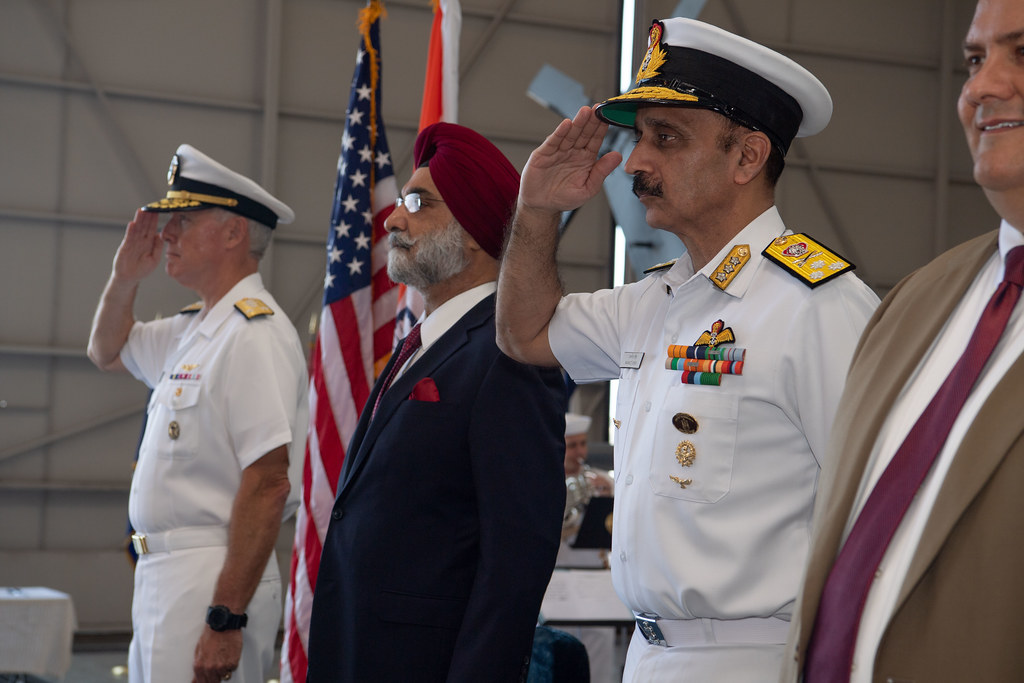Indian Ambassador meets US presidential advisor on science; discuss boosting cooperation in the field
Indias Department of Science and Technology and the US National Science Foundation are also in close touch. Sandhu has been meeting a number of senior administration officials to strengthen the India-US relationship in the field of science and technology. In addition to his meeting with Prof Lander, Sandhu also spoke to Under Secretary of Energy for Science Geraldine Richmond.

- Country:
- United States
India's Ambassador to the US, Taranjit Singh Sandhu, has met America’s presidential advisor on science, Prof Eric Lander, and exchanged ideas on strengthening bilateral cooperation in science and technology, a key priority area for the leadership of the two countries.
During the meeting on Friday, the discussions focused on key sectors including healthcare, technology, space, earth and ocean science, energy, emerging technologies, and cooperation in Science & Technology education.
“We exchanged ideas on strengthening the India-United States coop in Science and Technology, a key priority for the leadership of India and the US,” Sandhu said in a tweet after the meeting with Lander.
A mathematician and geneticist, Lander is the 11th Director of the Office of Science and Technology Policy and Science Advisor to the President, serving on the Cabinet in both capacities.
Before joining the Biden Administration, Lander was a professor of biology at the Massachusetts Institute of Technology (MIT), and a professor of systems biology at Harvard Medical School.
The meeting assumes significance in the context of healthcare. Lander is a doyen in genomics and molecular biology besides mathematics. He has had a long association with scientific groups in India particularly in fostering the International Disease Alliance and the concept of Map to Mechanism to Medicine.
The meeting also comes on the heels of the India-US collaboration delivering affordable solutions to Covid-19 vaccines and medicines. A memorandum of understanding between the two countries on health and medical sciences was signed in October 2021.
There has been ongoing intense cooperation in science and technology between the two countries.
The NASA-ISRO Synthetic Aperture Radar satellite is expected to launch in 2023; there is an expansion of the Joint Clean Energy Research and Development Centers (JCERDCs); and India being a major partner in Fermilab, America's particle physics and accelerator laboratory. India’s Department of Science and Technology and the US National Science Foundation are also in close touch.
Sandhu has been meeting a number of senior administration officials to strengthen the India-US relationship in the field of science and technology. In addition to his meeting with Prof Lander, Sandhu also spoke to Under Secretary of Energy for Science Geraldine Richmond. He reviewed the ongoing initiatives with the Secretary, Department of Science and Technology.
Science and technology education partnership has been another dimension of the outreach – to establish linkages between American and Indian institutions and students. Education Roundtable was held last year with the participation of a number of STEM-focused universities.
(This story has not been edited by Devdiscourse staff and is auto-generated from a syndicated feed.)
- READ MORE ON:
- Science & Technology
- Joint Clean Energy Research and Development
- Department of Science
- Indian
- India
- Office of Science and Technology Policy and Science Advisor
- India-United States
- Massachusetts Institute of Technology
- Harvard Medical School
- National Science Foundation
- Department of Science and Technology
- STEM
- NASA
- America
- Prof Lander
- Science
- Cabinet
- American
- Eric Lander
- Fermilab










